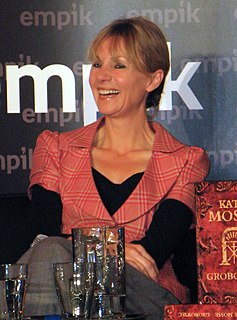A Quote by George R. R. Martin
Historical fiction is not history. You're blending real events and actual historical personages with characters of your own creation.
Quote Topics
Related Quotes
Writers of historical fiction are often faced with a problem: if they include real-life people, how do they ensure that their make-believe world isn't dwarfed by truth? The question loomed large as I began reading 'The Black Tower', Louis Bayard's third foray into historical fiction and fifth novel overall.
It is important to insist on the historical truthfulness of the narrative of the fall of Adam and Eve. Just as the account of the creation of Adam and Eve is tied in with the rest of the historical narrative in the book of Genesis, so also this account of the fall of man, which follows the history of man's creation, is presented by the author as straightforward, narrative history






































